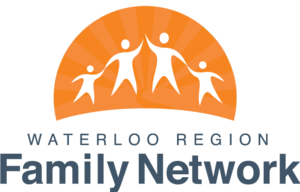
We collect basic website visitor information on this website and store it in cookies. We also utilize Google Analytics to track page view information to assist us in improving our website.
From time to time, the Waterloo Region Family Network (WRFN) is asked to distribute information on behalf of third parties. WRFN provides general information to self-advocates and families of children with special needs. The information provided on this website is not a recommendation, referral or endorsement of any resource, therapeutic method, or service provider. WRFN is not responsible for any information or services provided by third parties. You are urged to use independent judgment when considering any resource.
FASD in the Context of Human and Child Rights
It is important to consider individual rights in the context of international treaties that have been ratified in Canada. Human Rights are a universal standard. The United Nations Convention on the Rights of the Child (UNCRC), ratified in 1991, and the UN Convention on the Rights of Persons with Disabilities (UNCRPD), ratified by Canada in 2010.
The UNCRC speaks specifically to the rights that all children hold: to grow and develop to their full potential (Article 3), to special education and care for children with a disability (Article 23), and to help from the government for children who are in need (Article 26).
The UNCRPD provides an additional imperative around the rights of children with disabilities specifically. Article 7 explicitly defines the importance of “all necessary measures to ensure the full enjoyment by children with disabilities of all human rights and fundamental freedoms on an equal basis with other children.” In addition, as outlined under Article 8 (awareness raising) of the UNCRPD, ratifying countries must “…undertake to adopt immediate, effective and appropriate measures:
a) To raise awareness throughout society, including at the family level, regarding persons with disabilities, and to foster respect for the rights and dignity of persons with disabilities;
b) To combat stereotypes, prejudices and harmful practices relating to persons with disabilities, including those based on sex and age, in all areas of life;
c) To promote awareness of the capabilities and contributions of persons with disabilities.
Further, Article 24 of the UNCRPD describes the obligation that ratifying states have to ensure access to inclusive education at all levels for children with disabilities to develop to their full human potential, develop a sense of dignity and self-worth, develop their personality, talents and creativity, and fully develop their mental and physical abilities to their fullest potential. In realizing an inclusive education system, states must ensure:
a) Persons with disabilities are not excluded from the general education system on the basis of disability, and that children with disabilities are not excluded from free and compulsory primary education, or from secondary education, on the basis of disability;
b) Persons with disabilities can access an inclusive, quality and free primary education and secondary education on an equal basis with others in the communities in which they live;
c) Reasonable accommodation of the individual’s requirements is provided;
d) Persons with disabilities receive the support required, within the general education system, to facilitate their effective education:
e) Effective individualized support measures are provided in environments that maximize academic and social development, consistent with the goal of full inclusion.
Human and child rights have provided both the inspiration and a foundation for inclusion. That foundation requires the recognition of all children as full members of society. It also requires the removal of barriers that might prevent the enjoyment of rights and requires the creation of appropriate supportive and protective environments. These environments need to minimize and ultimately remove barriers to children’s full participation and the realization of their potential.
CanFASD has created a Plain Language Guide so we can better understand the UNCPD document. Click here.
The Calls to Action of the Truth and Reconciliation Commission.12 FASD is addressed in Call to Action numbers 33 and 34.
The to Call to Action number 33: We call upon the federal, provincial, and territorial governments to recognize as a high priority the need to address and prevent Fetal Alcohol Spectrum Disorder (FASD), and to develop, in collaboration with Aboriginal people, FASD preventive programs that can be delivered in a culturally appropriate manner.
We need to strive to the obligation that society has to all children and specifically those with disabilities, including FASD.
References:
RCY (2021) Excluded: Increasing Understanding, Support and Inclusion for Children with FASD and their Families. https://rcybc.ca/wp-content/uploads/2021/06/RCY-FASD_Report_FINAL_REVISED_21-JUNE-2021_Web.pdf
Harding (2021) Framing Fetal Alcohol Spectrum Disorder Policy, Practice, and Research Using the United Nations Convention on the Rights of Persons with Disabilities https://canfasd.ca/wp-content/uploads/publications/UNCRPD-and-FASD-final.pdf
CanFASD (2023) UNCRPD Plain Language Guide https://canfasd.ca/wp-content/uploads/publications/UNCRPD_PLAIN-LANGUAGE-GUIDE_Jan2023-1.pdf
Free Workshops at Sunbeam
Sunbeam Developmental Resource Centre has a number of free virtual workshops available for those with potential or diagnosed FASD. Workshops include:
Mental Health and Crisis Services for the Youth and Children in the Community - Virtual Speaker Series
Collaborating with Schools
Discussing Puberty and Sexuality with Your Child
5th Annual FASD Conference – Balancing Risk and Building Resilience
Dufferin Wellington Guelph Fetal Alcohol Spectrum Disorder is thrilled to present our 5th Annual FASD Conference, in-person, and on Wednesday, May 29th, 2024. The event will be held at the GrandWay Events Centre, 7445 Wellington County Rd 21, Elora, ON.
Lunch will be provided.
Our keynote speaker, Katy Flannigan, PhD, R. Psych, will share expertise and insights on Fetal Alcohol Spectrum Disorder. Additional speakers can be found here.
Whether you are working with individuals with possible or confirmed FASD, this in-person conference is designed to provide you with the latest research, interventions, and strategies.
We also invite you to join us for a special free Parent and Caregiver Evening on Tuesday, May 28th, 2024, to connect and share your experiences with others who understand